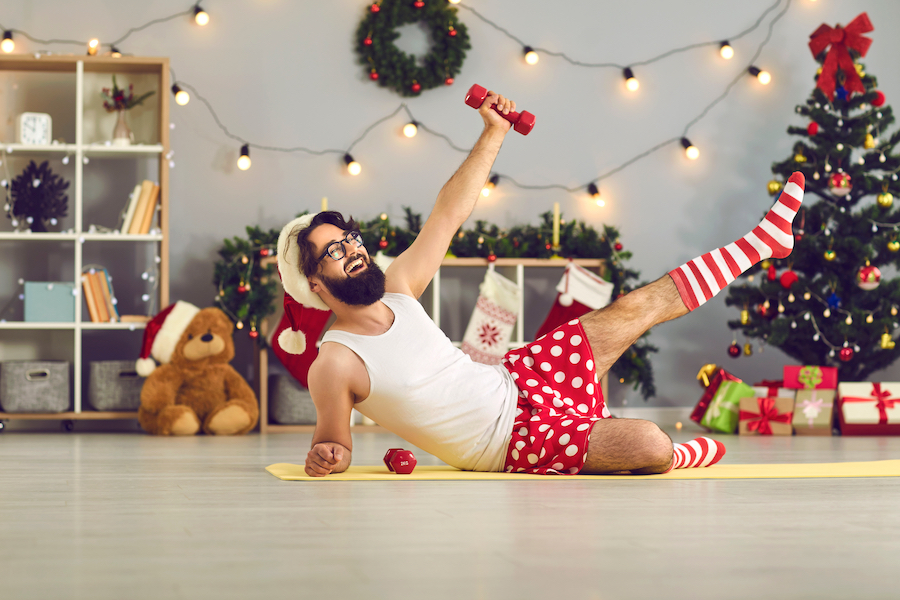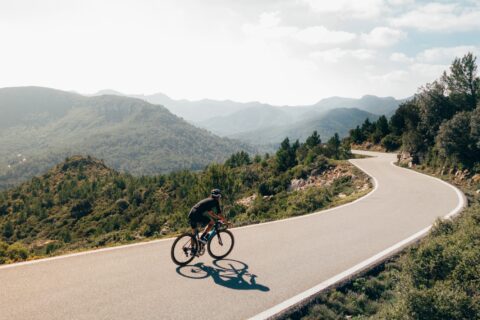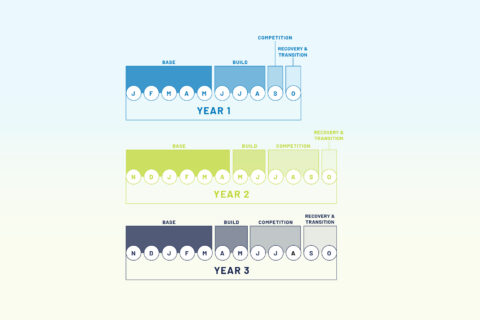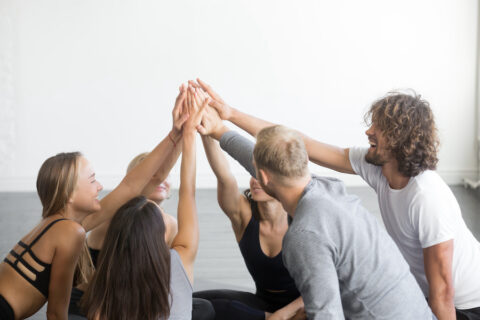Bad weather, not much daylight, holiday parties, lack of motivation—these are just some of the factors that can make training at this time of year particularly hard. Here at Fast Talk Labs, we’ve navigated a few off-seasons between us, and know exactly how to come out the other side feeling fresh and ready to set up a successful season. With that in mind, we asked our three resident experts, sports scientists Trevor Connor, Ryan Kohler, and Rob Pickels, to give us their top tips for enjoying the holidays as an athlete.
1. Know what you want at the end of the off-season
Set your vision for the next three months and determine areas you’d like to make progress. Create a plan for yourself (or with your coach) that is based on this vision, ideally with process goals and outcome goals. For example, you might decide that sleep is an area you want to work on. You could set the outcome goal of increasing your sleep by 30-60 minutes a night. You could set the process goal of improving sleep hygiene habits before bedtime.
-Ryan Kohler
2. Do something new
Focusing on alternative activities—often with friends—is important at this time of year. With many of us spending most of the year focused on intervals and workouts with specific goals, intensities, and durations, now is the time to set that aside. Try to simplify things as much as possible. For example, you could still do a harder day of training but it might be a hilly trail run instead of a trainer ride or you might take your mountain bike out and charge up some hills instead of a perfectly measured effort. This still allows for consistent activity, but also allows you to unload the mental strain, and bring in some fun, which is just what the holiday period should be!
-Rob Pickels
3. Have fun!
Ah, yes, that ever-important F word. Remind yourself that while the season is far away, the season is also when training gets hard and when you might be making a lot of sacrifices. Now is the time when you don’t have to be so perfect and can do all those things that you might not have time for in-season. Go ride some crazy dirt fire road that’s too undulating for interval work in-season. Jump into a turkey trot in full costume. Join a pickleball tournament and see how long you can survive. I often tell my athletes that the most valuable thing they can do at this time of year is not what they do on the bike, but what they do off the bike to get the body back in balance.
-Trevor Connor
4. Don’t do too much racing and/or high-intensity training
It’s very easy for athletes to get carried away as training moves indoors and we spend more time on Zwift or other platforms. Jumping into e-races three days a week or chasing every avatar that passes you is most definitely one of the biggest mistakes I see from athletes at this time of year.
-RK
5. Be flexible
If you’re traveling and spending time with family then be flexible with your approach to training. Now is not the time to strictly stick to a training schedule at all costs. Your bike, running shoes, and swim goggles will all be waiting for you on your return.
-TC
6. Deliberately lose your mojo
I think the best way to keep an athlete’s mojo up is to intentionally let it drop off. Just like increased monotony in daily training increases the risk of overtraining, “mojo monotony” can increase the risk of burning out. Typically when an athlete continues to train regularly, but places training and their performance as a secondary priority, they’re able to later bring it to the forefront and devote the time and energy that it takes to reach their goals.
-RP
7. Hit the gym
Leave your bike alone and don’t be lured into running more miles. Instead get into the gym, build your strength, mobility, and resilience for the upcoming season. I’ve found that by focusing more on strength work at this time of year you can truly build the foundation for a healthy and successful season. There’s the added bonus that lifting some heavy weight can really help balance our sleep and stress response as well, similar to a “runner’s high.” Mixing those benefits into the more typical “high” we get from endurance activities can create a really positive balance for you as a complete athlete.
-RK
8. Do regular check-ins and reflections
Set aside time for regular check-ins and reflections. Every other week (or more frequently if you prefer), aim to write in your training diary the following three things:
- What are you proud of?
- What have you learned?
- What needs to change?
Then take action as needed!
-RK
9. Spend time with family and friends
Athletes (and their families) often make sacrifices during the race season in order to maximize training and race opportunities, so the holidays can be the perfect time of year to find a way to say thank you for all of that support you’ve enjoyed from them throughout the year. In my opinion, the biggest mistake an athlete can make at this time of year is not enjoying the holidays—and time with family and friends—enough.
-TC
10. Do a four-day mini-camp
If your holiday season isn’t overbooked with travel and family plans then this time can be a great opportunity to do a unique and very enjoyable “training camp.” Do a four day mini-camp of just easy volume. This early in the season you don’t have to worry about structure or intensity. Instead, up the volume with decent length workouts every day, but make them slow and steady and make them enjoyable. Go and explore all those routes you can’t when you’re at the height of the season and worried about quality. Being very early in the season, four days of volume is all you’ll need to generate some fatigue and get a good block.
-TC
RELATED: Fast Talk Podcast Episode 243: What Happens When We Stop Training? with Dr. Iñigo Mujika




